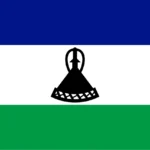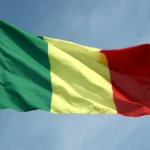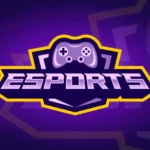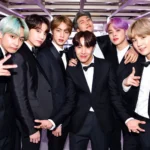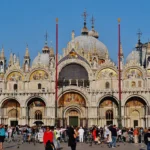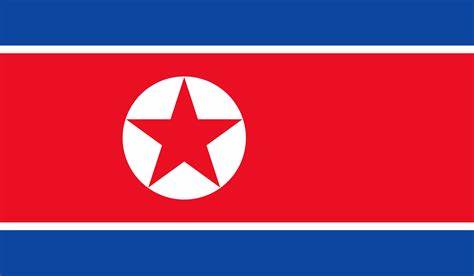
- North Korea is officially known as the Democratic People’s Republic of Korea (DPRK) and was founded in 1948. The country is located in East Asia and shares its borders with China, Russia, and South Korea. Since its founding, North Korea has been ruled by the Kim dynasty, which has maintained a tight grip on the country’s political and economic systems. The country’s government operates under a socialist ideology known as Juche, which emphasizes self-reliance and independence.
Despite the official name of the country, there is little that is democratic about North Korea’s political system. The country is ruled by a single-party dictatorship that is dominated by the ruling Kim family. The country’s political system is heavily centralized, with power concentrated in the hands of the Supreme Leader, who serves as both the head of state and the head of the ruling party. The government tightly controls all aspects of political life in North Korea, including the media, education, and the arts. As a result, there is little room for dissent or opposition within the country.
- The capital city of North Korea is Pyongyang, which has a population of approximately 2.8 million people. The city is located on the banks of the Taedong River and is home to many of the country’s most important government and cultural institutions. Despite being the capital city, Pyongyang is heavily monitored and controlled by the government, with limited access to the outside world.
Pyongyang is often referred to as a “showcase city” by the North Korean government, as it is used to project an image of modernity and prosperity to the outside world. However, this image is largely a facade, as the city’s infrastructure is in a state of disrepair and many residents struggle with poverty and basic necessities like electricity and running water. The government heavily controls the city’s economy, with limited opportunities for private enterprise or entrepreneurship. As a result, most of the city’s residents work for the government or government-owned enterprises.
- The Korean War (1950-1953) ended with a ceasefire rather than a peace treaty, which means that technically North and South Korea are still at war. The conflict began when North Korea, supported by China and the Soviet Union, invaded South Korea in an attempt to reunify the country under communist rule. The war resulted in the deaths of millions of people and left the Korean peninsula divided into two separate countries.
The Korean War had a profound impact on North Korea, shaping the country’s political and economic trajectory in the decades that followed. The country’s leadership saw the conflict as a heroic struggle against imperialist forces and used it to justify a cult of personality around the country’s founder, Kim Il-sung. The war also contributed to the country’s isolation from the international community, as the United States and its allies imposed economic sanctions on North Korea in response to the conflict. The ongoing tensions between North and South Korea have continued to shape regional politics in East Asia and have contributed to the ongoing militarization of the Korean peninsula.
- North Korea has one of the largest standing armies in the world, with approximately 1.2 million active soldiers and another 7.7 million in reserve. The country’s military is heavily indoctrinated with propaganda that emphasizes loyalty to the Kim dynasty and the importance of defending the country against perceived threats from foreign powers. North Korea’s military also operates a significant number of ballistic missiles, including intercontinental ballistic missiles (ICBMs) capable of reaching the United States.
The country’s military is a central pillar of the North Korean state, and the government invests heavily in its development and modernization. The country’s military spending is estimated to be around 25% of its GDP, which is one of the highest rates in the world. The country’s leaders have emphasized the importance of military strength as a means of defending the country’s sovereignty and maintaining its independence. However, this emphasis on military might has come at a significant cost to the country’s population, as resources that could have been used to improve living standards have been diverted to the military.
North Korea’s military is also known for its aggressive rhetoric and provocative behavior, which has contributed to regional tensions in East Asia. The country has conducted several missile tests and nuclear weapons tests in violation of international agreements, which has resulted in condemnation and sanctions from the international community. Despite this, the country’s leadership has remained defiant, arguing that its military strength is necessary to deter perceived threats from the United States and its allies.
- North Korea has a command economy, which means that the government controls all aspects of the economy, including prices, production, and distribution of goods and services. The country’s economy is heavily reliant on natural resources like coal, iron, and minerals, which are used to fuel the country’s heavy industry. Despite the government’s efforts to centralize the economy, North Korea has struggled with chronic food shortages and widespread poverty.
North Korea is one of the poorest countries in the world, with an estimated GDP per capita of less than $2,000. The country’s economy is heavily centralized and tightly controlled by the government, with little room for private enterprise or entrepreneurship. The country’s economic system is based on a socialist ideology that emphasizes state ownership and central planning.
The country’s economy has struggled to keep pace with the rest of the world, with many of its industries and infrastructure in a state of disrepair. The country is heavily reliant on foreign aid and trade, particularly from China, its largest trading partner. The government has attempted to reform the country’s economy in recent years, but progress has been slow and the country remains largely isolated from the global economy.
North Korea’s economic struggles have had a significant impact on the country’s population, with many citizens struggling to access basic necessities like food and healthcare. The government operates a system of rationing to ensure that its citizens have access to basic goods, but these rations are often insufficient and of poor quality. The country’s healthcare system is also severely underfunded and understaffed, with limited access to essential medicines and medical equipment.
- North Korea has been ruled by the Kim dynasty since its founding in 1948. The current leader is Kim Jong-un, who took over after the death of his father, Kim Jong-il, in 2011. Kim Jong-un is known for his repressive policies and has continued to pursue the country’s nuclear weapons program despite international sanctions and condemnation.
North Korea is known for its strict control over its citizens’ daily lives, including their freedom of speech, assembly, and movement. The country operates under a system of social and political control known as “Songbun,” which categorizes citizens based on their perceived loyalty to the government. This system can determine access to education, employment, and housing, among other things.
Under Songbun, citizens are categorized into one of three groups: the “core” class, which includes loyal members of the ruling party; the “wavering” class, which includes those who are perceived as being less loyal or less reliable; and the “hostile” class, which includes those who are perceived as being disloyal or a threat to the government. The system is often used to punish political dissidents and their families, who can be denied access to education, employment, and other basic rights.
North Korea’s strict control over its citizens’ lives has also resulted in limited access to information and the outside world. The government heavily censors the media and restricts access to the internet, which is only available to a select few members of the elite. As a result, many North Koreans have a limited understanding of the outside world and rely on government propaganda for information.
- North Korea is one of the most isolated countries in the world, with limited access to the internet and strict controls on information flow. The country operates its own intranet, known as Kwangmyong, which is heavily censored and monitored by the government. Access to foreign media and news is strictly limited, and citizens are not allowed to travel abroad without government approval.
The use of forced labor is a major human rights concern in North Korea, with many citizens trapped in a system that offers little hope for escape or improvement. The government has repeatedly denied allegations of forced labor, but reports from defectors and human rights organizations paint a bleak picture of the country’s labor practices.
- Despite the country’s isolation, North Korea has a nuclear weapons program and has conducted several nuclear tests in recent years. The country’s pursuit of nuclear weapons has been a major source of tension with the international community, particularly the United States and its allies in the region. North Korea’s nuclear capabilities have led to increased fears about the country’s ability to launch a nuclear attack against its enemies.
The country’s military technology is based on a strategy of asymmetric warfare, which relies on unconventional tactics like guerrilla warfare and cyberattacks to counterbalance the superior military strength of its adversaries. North Korea is also known for its extensive network of underground tunnels and bunkers, which are designed to protect its leadership and military assets in the event of a conflict.
- North Korea has a very low standard of living, with most citizens living in poverty and lacking access to basic necessities like food and healthcare. The government provides limited social services and relies heavily on a system of forced labor to maintain its infrastructure and economy. Many citizens are also subject to arbitrary arrest and detention, particularly those who are seen as political dissidents or enemies of the state.
The country is also known for its use of forced labor overseas, with tens of thousands of North Korean workers being sent to countries like Russia and China to work in industries like construction and mining. These workers are often subjected to harsh conditions and forced to work long hours, with little or no pay.
- The exact number of political prisoners in North Korea is unknown, but estimates range from 80,000 to 120,000 people who are believed to be held in forced labor camps and other detention facilities. These camps are often described as being inhumane, with reports of torture, starvation, and forced labor. The government denies the existence of these camps and has been accused of using them as a tool for political repression. North Korea is also known for its strict control over its citizens’ daily lives, including their freedom of speech, assembly, and movement. The country operates under a system of social and political control known as “Songbun,” which categorizes citizens based on their perceived loyalty to the government. This system can determine access to education, employment, and housing, among other things. Overall, North Korea’s human rights record is considered to be one of the worst in the world.
